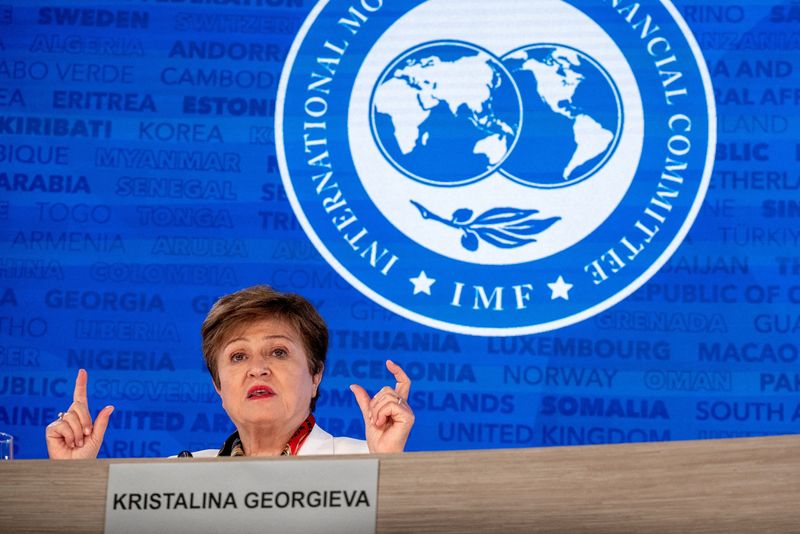By David Lawder
WASHINGTON (Reuters) – International Monetary Fund Managing Director Kristalina Georgieva said on Thursday that she expected U.S. presidential candidates Donald Trump and Kamala Harris would both take a “very pragmatic” approach to the IMF and the World Bank.
Georgieva told Reuters in an interview that it was up to the American people to choose their leader on Nov. 5, and that she has had a positive experience working with current and past U.S. administrations, including former President Trump’s.
As global finance leaders gather in Washington next week for IMF and World Bank annual meetings, a huge question on their minds will be the future of U.S. leadership at the institutions given the close contest between Republican candidate Trump and Democratic candidate Harris.
Trump has promised massive tariff increases on Chinese goods and other imports, part of a return to his “America First” retreat from multilateralism.
The conservative Republican “Project 2025” agenda, from which Trump has distanced himself, calls for U.S. withdrawal from the IMF and World Bank to pursue only bilateral development and financial aid in line with U.S. interests.
Georgieva presented a more sanguine view of potential U.S. election outcomes.
“My experience with the U.S. – any administration – has been always very positive,” Georgieva said. “The U.S. is very pragmatic. It brings a can-do attitude. It is demanding, and I like that.”
She worked with the Trump administration as the CEO of the World Bank in 2018 to land a $13 billion capital increase, and later, as head of the IMF, to channel rapid COVID-19 relief financing to struggling economies across the world.
The U.S. Treasury at the time was complaining about excessive World Bank lending to China, and Georgieva said the Trump administration had demanded reforms to raise borrowing costs for larger middle-income countries to discourage such loans in exchange for backing the capital increase.
“So from that perspective, I think we can see the same very practical, pragmatic attitude in the future,” from U.S. administrations, she added.
On Tuesday, World Bank President Ajay Banga cited the 2018 capital hike as evidence that Trump recognizes the value of U.S. leadership of the two institutions. He added that the World Bank can multiply development dollars and can help turn poor countries into thriving markets for U.S. companies.
The U.S. is the largest shareholder in both the IMF and the World Bank and holds effective veto power over major structural decisions.
Georgieva said rather than denouncing proposed new trade restrictions as “wrong,” the IMF was working to understand the impetus for increased trade restrictions, particularly in advanced economies like the U.S. and Europe.
“Let’s try to understand the drivers in each and every country, and then analyze what is the possible response and what are the costs and benefits, and then work with our members to bring forward more rational decision-making,” she said.



